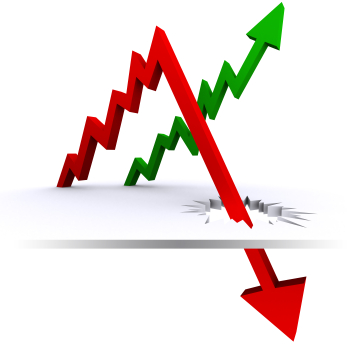Case study - rapid economic growth

 China's development could be advanced considerably if the government and the people abandoned their unhealthy fixation on the rise of gross domestic product.
China's development could be advanced considerably if the government and the people abandoned their unhealthy fixation on the rise of gross domestic product.
A recent edition of The South China Morning Post carried a feature expressing the point in a particularly enlightening fashion.
What's so great about rapid economic growth anyway?
For the princely sum of 14,500 yuan (HK$16,800), the magazine's Beijing correspondent joined 30 or so mainlanders for a gruelling 10day, five-country coach tour of Europe.
Watching cultures collide - even at second hand - is always illuminating. No doubt the speed at which the tourists swept past the architectural and artistic glories of Paris, pausing only to snap the obligatory photographic record of their presence before heading off for an orgy of handbag shopping, would have raised some supercilious French eyebrows.
But equally, for their part the visitors were taken aback by the leisurely pace of life in Europe, where the locals linger over coffee, prohibit bus drivers from working more than 12 hours a day, and even stop their cars for pedestrians.
"With a pace like that, how can their economies keep growing?" the Chinese guide asks. "Only when you have diligent, hardworking people will the nation's economy grow."
It's a theme that recurred constantly as the group tore around Europe, with the visitors marvelling at the willingness of French workers to go on strike, and at how many years the Italians take to build a new highway. "If this were China, it would be done in six months," one says. "That's the only way to keep the economy growing."
What's remarkable here is not that the Chinese tourists found Europe slow-moving - Americans have been saying the same for decades - but that their automatic assumption that fast growth is the best, indeed the only, measure of a country's economic success.
This begs the question: what's so great about rapid growth anyway?
That might sound like a dumb thing to ask, but the more you think about it, the more the question makes sense.
The growth our tourists were talking about was in gross domestic product (GDP), which measures the final value of all goods and services produced by an economy.
GDP was developed in the US during the Great Depression, and came into its own during the second world-war as a measure of how many guns, ships and planes the US economy was able to produce. It has been the standard measure of economic strength ever since.
But GDP measures quantity, not quality. In other words, although it says a great deal about how much stuff you can churn out, it tells you very little about the state of your economic development.
For example, GDP counts all investment as positive, whether or not that investment turns out to be productive in the longer run.
So if a country pours resources into building pyramids, its GDP will rise sharply while they are under construction. But considering that pyramids, once complete, add nothing to the economy (except maybe generating tourist revenues four millennia later), it is difficult to claim that their construction furthers economic progress.
This consideration is especially important for China. Although the country's leaders aren't building pyramids, they may be doing the modern equivalent: building hundreds of expensive airports, high-speed rail lines and glittering financial centres that can never hope to generate a return on the investment involved. These projects add to GDP growth in the short term but do nothing to advance economic development.
Similarly, GDP fails to account for the costs of environmental damage. All production is regarded as positive, even if the pollution it causes reduces the productive capacity of the agricultural sector and pushes up health care costs.
Again, this is important for China. A few years ago, the State Environmental Protection Administration did try to factor pollution costs into the country's GDP figures. But when it found that including environmental costs would have reduced growth by at least a third, the attempt was quickly discontinued. That shouldn't have been too surprising given that maintaining high headline GDP growth has become an obsession with China's leaders, who tout rapid growth as the justification for their authoritarian rule.
And as our travellers' comments show, their message resonates strongly with China's people, or at least those rich enough to take package tours round Europe.
But unfortunately the GDP measure by which both China's government and its travelling classes set such store is a deeply flawed measure of true economic progress.
As Simon Kuznets, the US economist who originally developed the idea of gross domestic product, warned: "Distinctions must be kept in mind between quantity and quality of growth, between its costs and return, and between the short and the long run. Goals for more growth should specify more growth of what, and for what."
It's a message China and its leaders would do well to heed.
That's not to say China should immediately embrace a European lifestyle - heaven forbid - but it does mean that the country's economic development could be advanced considerably if only its government and people were to abandon their unhealthy fixation on the rapid growth of GDP.
South China Morning Post (25 May 2011) by Tom Holland (reproduced here with permission of the author)
If you would prefer a pdf version of the original article, please follow the link below:

- Summarize the arguments for slowing down the rapid growth of GDP?
- To what extent do you agree with these arguments?
- Explain the counter arguments in favour of increasing the level of a country's GDP.
